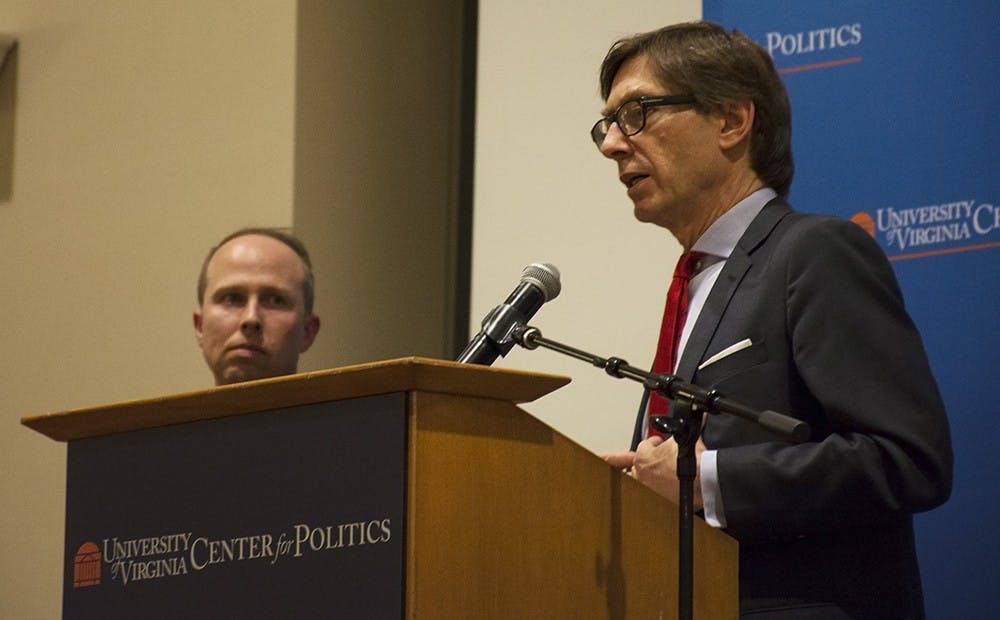German Ambassador to the United States Peter Wittig visited the University on Monday as part of the Center for Politics’s Ambassador Series. Wittig spoke and took audience questions in the Newcomb Ballroom.
Wettig spoke at length about the transatlantic relationship between Germany and the United States and the international challenges both countries face today.
“The cooperation between our two countries is excellent, probably as good as it has ever been,” Wettig said. “This is certainly true of the particularly close relationship between President Obama and Chancellor Angela Merkel.”
A focal point of his talk was the refugee crisis faced by the European Union and its significant impact on Germany in particular.
“Germany has accepted 1.1 million refugees alone in 2015 — a figure that would be roughly equivalent to the U.S. taking in 4.4 million asylum seekers,” Wettig said. “These numbers speak for themselves.”
The scale of the refugee crisis has grown to be the greatest challenge to the European Union and Germany since World War II, Wettig said.
“It is self-evident as our resources are limited. We will have to bring down the number of refugees and migrants that are coming into our country, nationally and also through international cooperation,” Wettig said.
Solving the crisis entails a solution of a fair distribution of refugees and acknowledging a humanitarian responsibility to the refugees on an international level that includes the United States, Wettig said.
The ambassador spoke about the triumphs of United States and Germany’s partnership in foreign policy, from the Paris climate talks to the Iranian nuclear deal.
However, Wettig also said there are areas that could see improvement in the transatlantic relationship between the two nations.
In order to prevent a sense of complacency and encourage deeper communication on modern issues, Wettig said the embassy hopes to see the development of a “transatlantic dialogue 2.0,” with immigration and integration as focal points of discussion.
“While America has been known as a melting pot that has succeeded in integrating a multitude of people from different origins into the American way of life … it is less known that Germany and Europe have also grown into societies with substantial immigrant populations and have had remarkable success in integrating them over the past decades,” Wettig said.
Wettig concluded the speech with an appeal for a more robust dialogue between Germany and the United States on modern issues of data privacy, government surveillance and how the two countries can boost economic progress by working with each other in the future.
Third-year College student Mary Richman said Wettig’s visit allowed for a closer look at current events.
“It is important to create awareness of the German culture among American students,” Richman said in an email statement. “It was great to hear about the political status in Germany and hear first hand about how Germans feel about certain situations.”
Richman said the event was a candid discussion.
“Being able to ask the German Ambassador what he thinks about these issues or what he thinks Germany's role is concerning these issues really was a once in a lifetime opportunity,” she said. “As a German student this was very exciting.”







